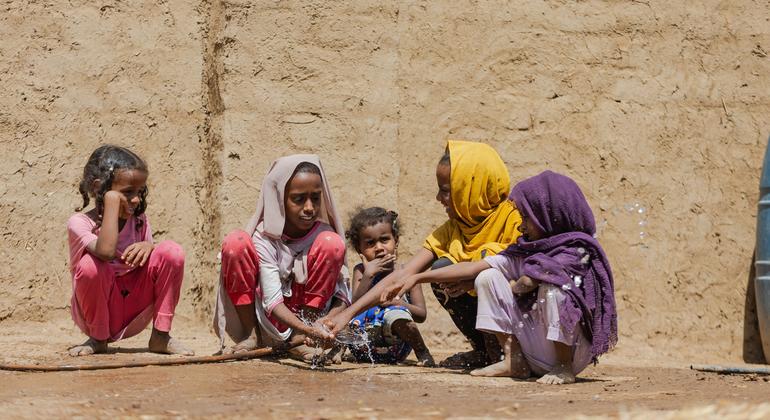The United Nations health agency has raised alarm over the worsening humanitarian, economic, social, and political crises in South Sudan. These crises were originally sparked by a brutal civil conflict in 2013 and have been exacerbated by the recent influx of refugees from Sudan following the war between rival militaries. Since April 2023, over 650,000 new arrivals have sought refuge in South Sudan, adding to the already dire situation in the country.
Currently, nearly six million people in South Sudan, which accounts for 46 percent of the population, are facing crisis levels of food insecurity. This number is expected to rise to around 7.1 million during the current lean season. The situation has been further complicated by the 2023-24 El Niño weather phenomenon, which brought dry conditions, erratic rainfall, and significantly impacted harvests. The severe flooding caused by El Niño has affected previously unaffected areas and has added to the challenges faced by the population.
In a recent report, the World Health Organization (WHO) highlighted that severe flooding, recurrent violence, weak governance, poverty, and lack of infrastructure have created a complex humanitarian crisis in South Sudan. A staggering 8.9 million people, mostly in flood and conflict-affected areas, have been affected, with vulnerable groups such as women, children, the elderly, and people with disabilities at higher risk.
The UN Refugee Agency (UNHCR) conducted its first-ever Forced Displacement Survey (FDS) in South Sudan to assess the situation of both refugee and host communities. The survey, conducted between April and December 2023, covered around 3,100 households and revealed alarming levels of suffering among both groups. The findings showed that all communities face numerous challenges, including limited services, high unemployment, lack of education, poor infrastructure, and overcrowded shelters.
One of the key findings of the survey was that 74 percent of households in both refugee and host communities had experienced hunger in the past month. Additionally, over 40 percent of both groups reported having less income than the previous year, further exacerbating the already volatile situation in the country. The arrival of refugees from the Sudan crisis has strained resources and services in South Sudan, while the closure of the main oil pipeline due to the conflict has also had a negative impact on the country’s economy.
Marie-Helene Verney, the UNHCR Representative in South Sudan, emphasized the need to link humanitarian assistance with stabilization and development programs. She stressed that substantive long-term investments are crucial to improving the well-being of both refugees and the communities hosting them. South Sudan currently hosts over 460,000 refugees from Sudan, the Democratic Republic of Congo, and Ethiopia, with an average of 1,600 people arriving daily, including refugees and returnees.
The Forced Displacement Survey provides comprehensive socioeconomic data on refugees and host communities, which is essential for informing programming and policy decisions. This data plays a crucial role in targeting assistance where it is most needed and bridging the humanitarian-development gap in South Sudan. The situation in the country remains dire, and urgent action is needed to address the challenges faced by the population and ensure the well-being of both refugees and host communities.









